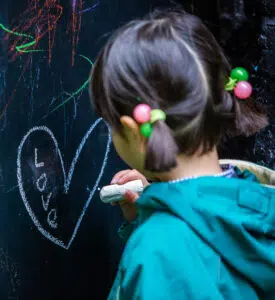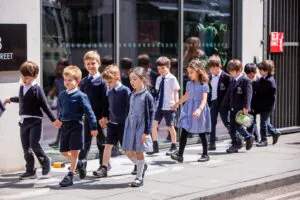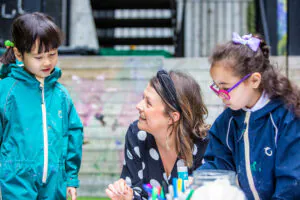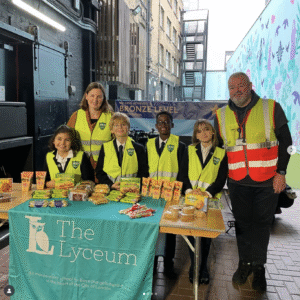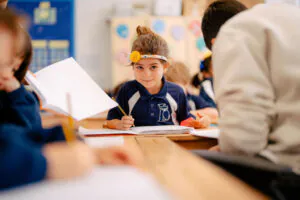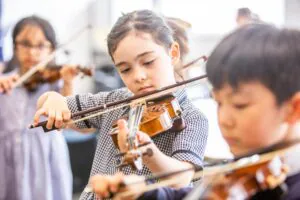I was sent an article written by Ruby in Year 1’s auntie yesterday and it had lots of great resources that I thought I would share. Here are some ideas that have been ‘magpied’ from a publication published by UNICEF with some of my own additions; I hope you find these tips useful:
1.Be aware
Look out for changes in your child’s behaviour – disrupted sleep, mood changes and more fractious behaviour could all be signs that they’re worried.
2. Listen first
Do they want to talk about it? If so, give them your full attention, take their lead and use their words. A good starting point is to understand what they already know and find out how they are feeling. Some children might know little about what is happening and not be interested in talking about it, but others might be worrying in silence. Children can discover the news in many ways, so it’s important to check what they’re seeing and hearing. It’s an opportunity to reassure them and potentially correct any inaccurate information they might have come across whether online, on TV, at school or from friends. Look together at responsible, age-appropriate sources, such as BBC Newsround or First News and let them know you’re always there if they want to talk.
3. Be honest and calm
Children have a right to know what’s going on in the world, but as adults we have a responsibility to keep them safe from distress. Use age-appropriate language, watch their reactions and be sensitive to their level of anxiety. Acknowledge that what’s happening is worrying you as well, but keep in mind that children take their emotional cues from adults, so try not to overshare any fears with your child.
Speak to them calmly and be mindful of your body language. Reassure them that they are safe from any danger. Remind them that many people are working hard around the world to stop the conflict and find peace. And remember it’s ok if you don’t have all the answers.
4. Focus on the helpers
It’s important for children to know that people are helping each other with acts of courage and kindness. Find positive stories, such as the first responders assisting people, or young people calling for peace.
Ask if your child would like to try a positive action; they could draw a poster or write a poem for peace. The sense of doing something, no matter how small, can often bring great comfort. At school, as you know we are supporting Refugee Support Europe and we have a cake sale coming up on the 16th March. Maybe you could look up some cake recipes together and do some early baking?
You could also show them our JustGiving Page and talk about the challenge the Year 5 and 6 children have set themselves – they might want to do their own family fundraising event and donate the money to the cause. We have already raised £4000 and the amount is going up every day. Thank you so much to everyone who has donated so far! Insert JustGiving Page
5. Be there for one another
As the conflict goes on, continue to check in with your child to see how they’re doing. How are they feeling? Do they have any new questions or things they would like to talk about with you?
Consider practising mindfulness, enjoy gentle family time together and, if needed, take breaks from social media. In school we have a ‘Calm Me Chime’ that the children listen to whilst taking deep breaths – you could ask them to teach you how it works and join them in a few pauses.
6. Look after yourself
Keep informed but think about how much information you’re exposing yourself to and take care of your own wellbeing. Children pick up on our anxieties, so it helps them to know that you are calm and in control. If you’re feeling anxious or upset, take time for yourself and reach out to other family and friends. Try to make time to do things that help you to relax and recuperate. Having open conversations with children and young people about how they’re feeling, and sharing how you feel too, is one of the best ways you can support them. Organisations like Young Minds are sharing resources via their websites and social media accounts. These are specifically designed for young people who may be feeling worried.
7. Talk to your child about all the wonderful things that they do have and express gratitude for them.
William Arthur Ward said that, feeling gratitude without expressing it is like wrapping a present and not giving it. As a response to this, in our staff meeting on Monday we wrote a thank you to someone in school and put it on the board in the hallway. Seeing the smiles on people’s faces when they walk past the board and read the messages is testament to the truth of the statement. If you or your child would like to say ‘thank you’ to someone in school, please send in a post it with a message on and we will post it on the board.
8. Look forward and celebrate the beginning of spring
You could plant some seeds or go on a walk and look for signs of new life in nature. At school we will be watching the chicks hatching from their eggs as we take delivery of an incubator and a clutch of fully fertilised eggs. Every year that we do the Living Eggs project, the same excitement and awe and wonder is generated when the little chicks emerge from their shells. We look forward to sharing pictures and videos with you.
9. Spend time considering just how lucky we are
This week, members of SLT have met with the headmaster of St Vincent’s’ School in Liverpool. The school provides a fantastic education for children with sensory impairments. We have arranged our ‘reverse inclusion’ residential trip for Year 6 and we hope to send other year groups too if the visit is a success. Our pupils will be able to see life through the eyes of their blind counterparts and I am sure that it will have a positive impact on them.
10. Go and play some sport
Keeping fit and healthy is a great way to keep anxiety and stress at bay and organising a kick around with a ball in the park with friends is easy to do. This week I accompanied the EYFS and Key Stage 1 children to the Artillery Ground for their weekly sports lesson. The early spring sunshine had turned the grass a beautiful emerald green and whilst watching the children running and playing it felt as if all was well with the world. The children who played the match against St Anne’s School this week certainly demonstrated how playing in a team can be uplifting and build resilience.
If you need any more information then here are some further resources for you:
https://www.childline.org.uk/get-involved/articles/worrying-about-russia-ukraine/
https://www.theweek.co.uk/news/world-news/956013/how-to-talk-to-children-about-the-ukraine-war
